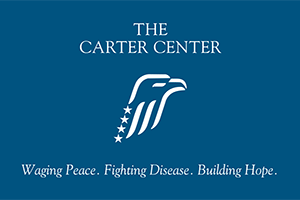
Recently I was honored with an invitation from Former First Lady Rosalynn Carter to attend her 30th Annual Symposium on Mental Health Policy at the Carter Center. The two-day event was a celebration of past accomplishments and brought together health industry thought leaders and experts within the national mental health community.
During the time President and Mrs. Carter were in the White House, she served as the Honorary Chairperson of the President’s Commission on Mental Health. She also helped bring about passage of the Mental Health Systems Act of 1980. At the Carter Center, Mrs. Carter is chair of the Carter Center Mental Health Task Force which is recognized for worldwide program initiatives to sustain momentum of the annual symposia and for bringing together mental health leaders and organizations nationwide to focus and coordinate efforts on key mental health issues and policy.
The symposium’s agenda was richly filled with celebrations of the past three decades and went quite deep into current challenges and opportunities, along with speculations about the next 30 years facing patients, providers, communities, policymakers and employers. Highlights included presentations on stigma against mental illness, access to mental health care and resources, coordinated care and recovery, technology-enabled mental health solutions and social justice.
From an employer perspective, one of the sessions which resonated with me was the presentation by Ray Fabius, MD, on cultures of health. Dr. Fabius is currently with HealthNEXT and a well-known author, global physician executive, entrepreneur and expert in the development of cultures of health. The cultures of health model is one that I am hopeful more organizations will embrace. When we think about stigma, access to mental health care, delays in treatment and compliance impacting health costs, disability days and overall productivity, would we not be better served by encouraging health? The model is designed for total health and well-being of the employee and organization, which in turn improves financial returns for the company and job satisfaction for the employees resulting in decreased absences and lower turnover.
Another fascinating mental health trend is the emergence of social media and peer advocacy in the mix of treatment. April Foreman is a psychologist who provided an inspiring and thoughtful presentation on how social media can – and is – being used ethically and effectively in mental health leadership. Through Twitter and chat sessions, mental health and substance abuse providers, patients and peer advocates come together addressing issues from suicide prevention to avoiding needless disability. I was moved by the level of success seen in a patient’s health and well-being with appropriate peer advocacy and support; the advocates are brave and smart about their care and crisis intervention.
More often than not, mental health care is provided at a time of crisis. Would we wait to treat cancer at stage IV? As I reflect on the symposium, the standout areas of cultures of health, mental health social media and peer advocacy have stuck with me as opportunities for us to further collaborate and transform mental health care and our support tools and ultimately work towards creation and deployment of a pre-disability model for mental health.
Mrs. Carter has been a strong advocate for mental health initiatives for over 40 years and her vision and leadership are cemented in footprints of the past and the future. I thank Mrs. Carter, the Carter Center and all participants of the symposium for a most enlightening and productive meeting. Please join me in continuing this discussion in my LinkedIn group, Transforming Healthcare for Tomorrow.
Kimberly George, SVP, Corporate Development, M&A, and Healthcare